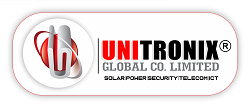PROJECT MANAGEMENT FOR RENEWABLE ENERGY INDUSTRY TRAINING

Get Trained! Be Certified! Be Employable
PROJECT MANAGEMENT FOR RENEWABLE ENERGY INDUSTRY TRAINING
WHAT YOU LEARN
Introduction to Renewable Energy Project Management: Understanding the importance of project management in the renewable energy sector. Role of project managers and key responsibilities.
Project Initiation and Planning: Defining project scope, objectives, and stakeholders. Creating a comprehensive project plan, including scheduling, budgeting, and resource allocation. Site Assessment and Feasibility Studies: Conducting site assessments for renewable energy projects (solar, wind, hydro, etc.). Feasibility studies, environmental impact assessments, and regulatory considerations. Procurement and Supply Chain Management: Procuring equipment, materials, and services for renewable energy projects. Vendor selection, contracts, and managing the supply chain. Risk Management and Mitigation: Identifying and analyzing risks specific to renewable energy projects. Developing risk mitigation strategies and contingency plans. Renewable Energy Technology Selection: Evaluating different renewable energy technologies based on project requirements. Making informed decisions on technology options. Permitting and Regulatory Compliance: Navigating regulatory requirements, permits, and approvals. Ensuring compliance with local, regional, and national regulations. Project Execution and Implementation: Managing project teams, contractors, and subcontractors. Overseeing construction, installation, and commissioning activities. Quality Assurance and Control: Implementing quality control processes and ensuring adherence to standards. Conducting inspections and testing to ensure project quality. Resource Management and Allocation: Efficiently allocating resources, including personnel, equipment, and finances. Tracking resource utilization and optimizing resource allocation. Project Monitoring and Reporting: Establishing performance metrics and key performance indicators (KPIs). Regularly monitoring project progress and generating status reports. Change Management and Scope Control: Managing changes to project scope and addressing scope creep. Implementing change management processes. Communication and Stakeholder Engagement: Effective communication with stakeholders, including investors, local communities, and regulatory authorities. Managing expectations and addressing concerns. Financial Management and Budgeting: Budget development, cost tracking, and financial reporting. Ensuring financial sustainability of renewable energy projects. Project Closeout and Lessons Learned: Conducting project closeout activities, including documentation and handover. Analyzing project outcomes and documenting lessons learned. Sustainability and Environmental Considerations: Incorporating sustainability principles and environmental best practices. Minimizing environmental impact and promoting eco-friendly project approaches. Case Studies and Real-world Examples: Analyzing successful and challenging renewable energy project case studies. Learning from practical experiences in project management.OUR AIM
UNITRONIX TRAINING ACADEMY (UTA) is the training arm of UNITRONIX GLOBAL CO. LIMITED; one of the fastest growing reputable RENEWABLE ENERGY companies in Nigeria. In partnership with the world’s top- rated solar modules manufacturer OEM across the world, we deliver intensive theoretical, practical and on-site installation training in solar energy. Our trainings are delivered in a conducive environment, with experienced professionals and hands-on practical sessions. Our training sessions are very interactive to ensure full understanding of all topics covered. At the end of the training, every trainee will be certified and accredited as a Unitronix Dealer for the purposes of partnership.
BENEFITS OF THIS TRAINING
- Become a certified installer/professional
- Gain employment with premier solar companies
- Engage in business partnerships and mentoring with UTA, the industry’s foremost training institution.
- Stay informed about emerging solar technologies and applications firsthand
- Achieve internationally recognized certification
- Join the UTA alumni network, unlocking exclusive benefits
- Tap into the expertise of our team of skilled engineers
- Attain membership in leading renewable energy associations

